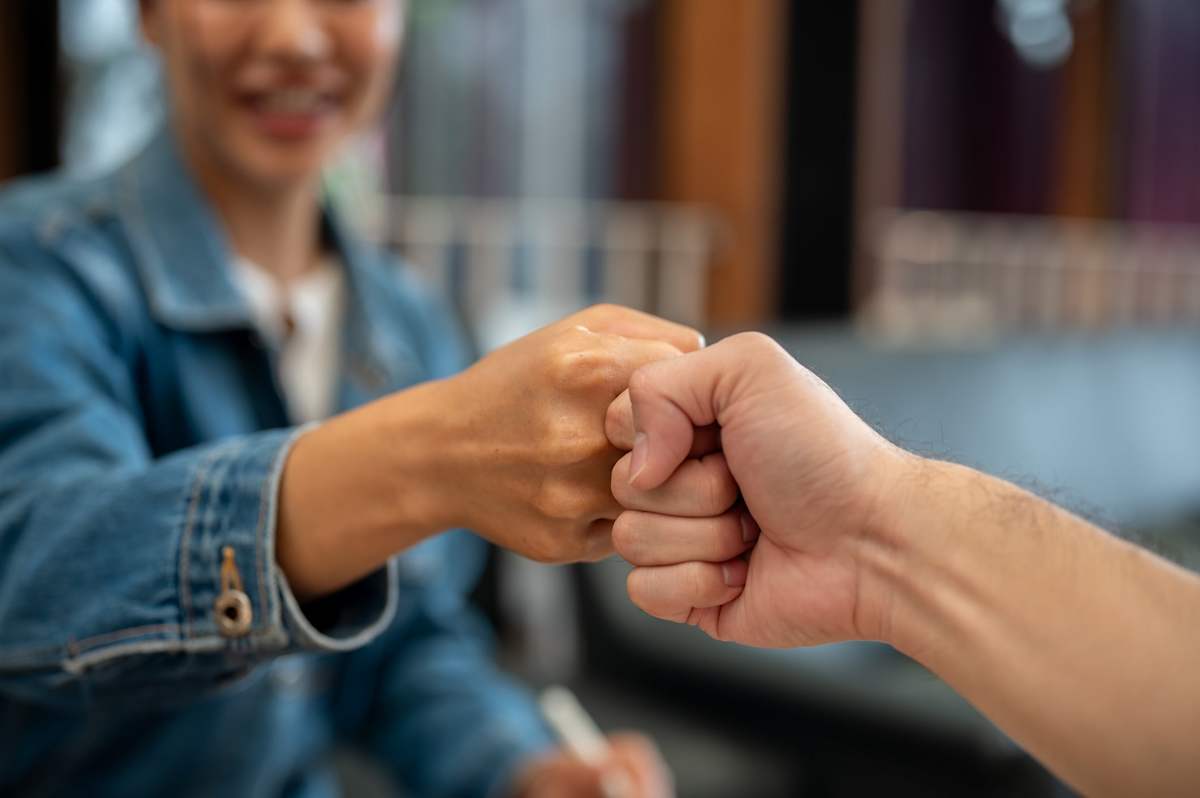
In a packed Monash School of Psychology graduate research seminar in 2023, the discussion had shifted – unexpectedly but inevitably – to gender identity. For a moment, no one spoke. A few eyes dropped to the floor, others flicked to the presenter, who hesitated.
An uncomfortable silence settled over the room. It wasn’t born of indifference. It was caution. No one wanted to speak out of place, to be misunderstood, misquoted, or misjudged.
The tension was palpable – and it was precisely that moment that inspired our Brave Conversations project.
As university educators, we had begun noticing a trend that had been unfolding gradually over the past decade – a shift in campus culture. More and more students – and staff – were disengaging from difficult discussions, not because they didn’t care, but because they cared too much. The stakes of getting it wrong felt too high.
In this environment, disagreement has become synonymous with danger. Much of this self-censorship was rooted not in hostility or in restrictions on freedom of speech, but in a sincere desire to be compassionate and civil.
It reflected an instinct to minimise harm, preserve relationships, and uphold a respectful learning environment – values that, paradoxically, oftentimes curtailed open inquiry rather than encouraging it.
So we asked ourselves: What would it look like to equip students and educators with the skills – and the courage – to stay in the room when things get uncomfortable?
From silence to skill
The Brave Conversations project was born out of a shared concern that, in an effort to maintain harmony, our classrooms were sacrificing something essential – intellectual friction.
Students were turning away from challenges, and educators were softening their syllabi. As Jonathan Haidt and Greg Lukianoff argue in The Coddling of the American Mind, the desire to protect students from discomfort can paradoxically leave them more vulnerable – less prepared for real-world complexities, less able to grapple with ideas that challenge their worldview.
We observed that beneath the silence was fear – fear of offending, fear of being ostracised, fear of confrontation. And in that vacuum, only the loudest or most polarised voices remained. The rest stayed quiet, uncertain how to express themselves in ways that were both honest and respectful.
Brave Conversations is our response. It’s a practical, research-informed initiative designed to help staff and students navigate hard conversations with empathy, skill, and curiosity. We don’t teach people what to think. We teach them how to stay present when the thinking gets hard.
What happens in a brave conversation?
When we launched our project, we began by creating a set of intensive four-hour workshops that model and teach techniques for engaging constructively with disagreement.
These include perspective-taking exercises, roleplay scenarios, and evidence-based tools drawn from moral psychology, deliberative democracy, and contemplative education.
The project is proudly housed within the Monash Centre for Consciousness and Contemplative Studies, an interdisciplinary hub led by Professor Jakob Hohwy. The centre explores how insights from philosophy, neuroscience, and reflective practice can enrich not only individual wellbeing but also institutional culture, providing a natural home for work like ours.
Participants learn to identify and regulate their own discomfort, to ask better questions, and to move beyond certainty toward curiosity.
One tool we use is the principle of looping for understanding, which encourages participants to paraphrase others’ views in a way the speaker recognises as fair. This deceptively simple practice – just listening carefully and repeating someone’s view before responding – often de-escalates tension immediately.
It reminds us that understanding is not the same as agreeing, and that empathy is not endorsement.
The response has been overwhelming. Our first round of 2024 workshops for academic staff filled within an hour. To date, more than 300 Monash educators – from medicine to media studies, from computer science to criminology, and from teaching associate to tenured professor – have completed the training.
In post-workshop surveys, participants frequently mention a sense of relief – finally, a space where disagreement is not taboo, but teachable.
Measuring discomfort in real time
But Brave Conversations is more than a set of training workshops; it’s also a live research program. We’re interested in what actually happens – physiologically and emotionally – when people stay in difficult conversations rather than withdraw. Working with colleagues from psychology and education, we’re developing methods to measure real-time behavioural responses during uncomfortable dialogue.
This helps us track in real time when tension arises and when it de-escalates, offering valuable insight into what types of language, tone or behaviour help people stay engaged rather than shut down.
It’s part of a growing interdisciplinary effort to understand what enables people to remain open-minded in the face of complexity and discomfort.
Monash’s own award-winning educator, Professor Michelle Lazarus, has written extensively on this theme, particularly in her recent book, The Uncertainty Effect, which explores how tolerance for uncertainty can transform learning, decision-making, and wellbeing.
Her work underscores that the ability to sit with ambiguity – not rush to closure – is a teachable skill that supports intellectual humility and civic resilience.
By combining pedagogical training with empirical research, we think Brave Conversations sits at the nexus of education, mental health, and social cohesion.

Not just for the classroom
In semester two this year, we’re expanding the program beyond staff training. Brave Conversations will run undergraduate workshops co-designed with students themselves.
We’re also piloting a national student leadership retreat in regional Victoria, bringing together 30 students from the Group of Eight universities for a week of immersive dialogue training, structured disagreements, and collaborative problem-solving.
The goal is not just to build capacity in individuals, but to seed a broader cultural shift on campus, towards environments where disagreement is normal, productive, and even welcome.
We’re also launching an internship program to bring student voices into the centre of curriculum design. As we often joke, we’re two middle-aged academics – we don’t know what it’s like to be an 18-year-old, digitally-native adolescent in 2025.
We want students involved not just as participants, but as co-creators of the next phase of this project.
This co-design model is grounded in democratic pedagogy, an approach that emphasises teaching and learning grounded in the principles of democracy, such as participation, equality, critical thinking, and shared power.
It’s also born out of a recognition that many young people today are desperate for spaces where they can speak freely, be heard deeply, and disagree constructively, without fear of backlash or judgment.
Why this matters now
Australia is experiencing a notable decline in trust across key institutions, contributing to a path towards polarisation. Three out of five Australians believe that the current lack of civility and mutual respect is unprecedented. This erosion of trust is evident in the declining confidence in government and media.
Such divisions underscore the urgency for initiatives such as Brave Conversations, which aim to foster constructive dialogue and rebuild social cohesion. In our hyper-polarised world, learning how to disagree well may be one of the most important skills a university can teach.
The ability to hear views you find difficult – and to respond with both conviction and humility – is essential to democratic citizenship, scientific inquiry, and human connection.
We believe a well-functioning society depends not on universal agreement, but on a shared commitment to fair and open hearing, even when disagreement runs deep. Brave Conversations is our modest contribution to that shared commitment.
We don’t promise consensus. We don’t expect harmony. And we certainly don’t offer intellectual coddling or a falsely sanitised notion of safety.
What we offer instead is something more lasting – the ability to stay with discomfort long enough to learn something new, not just about the world, but about each other.
And maybe, if we're lucky, about ourselves, too.





